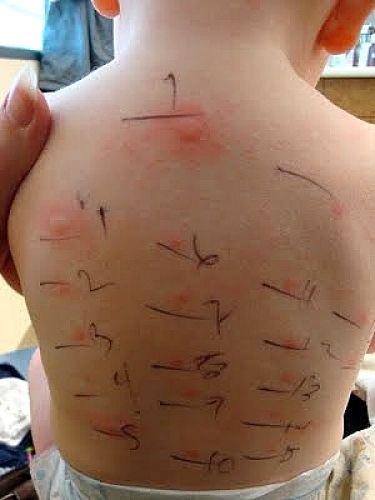Peanut allergies are on the rise and it is important to understand how they develop. Peanut allergy is the most common type of food allergy among children and can have severe consequences. In this blog post, we will explore the causes of peanut allergies, how they develop in babies, and what can be done to prevent them.
Table of Contents
The Causes of Peanut Allergies
Peanut allergies occur when the immune system identifies the proteins in peanuts as harmful and triggers an allergic reaction. The proteins in peanuts are similar to those found in other foods such as soy, peas, and lentils. This means that if a baby is allergic to peanuts, they may also be allergic to these other foods.
Genetics and environmental factors also play a role in the development of peanut allergies. If a child has a family history of allergies, they are more likely to develop them. Exposure to peanuts in the womb or during breastfeeding can also increase the risk of developing a peanut allergy.
How Peanut Allergies Develop in Babies
Peanut allergies can develop at any age, but they are most common in babies and young children. The first exposure to peanuts is often through peanut butter or other peanut-containing foods. If the baby’s immune system identifies the proteins in peanuts as harmful, it will produce antibodies to fight them.
The next time the baby is exposed to peanuts, their immune system will recognize the proteins and release chemicals such as histamine to fight them. This is what causes the allergic reaction. The severity of the reaction can vary from mild symptoms such as hives or itching to more severe symptoms such as anaphylaxis.
Preventing Peanut Allergies
There is no surefire way to prevent peanut allergies, but there are steps that can be taken to reduce the risk. The American Academy of Pediatrics recommends that babies at high risk of developing peanut allergies be introduced to peanut-containing foods as early as 4-6 months of age.
Babies should be introduced to peanuts gradually and under the guidance of a healthcare professional. It is also important to continue to expose babies to peanuts regularly to maintain tolerance.
Treatment for Peanut Allergies
There is no cure for peanut allergies, but there are treatments available to manage the symptoms. Antihistamines can be used to relieve mild symptoms such as itching or hives. In more severe cases, epinephrine may be needed to stop anaphylaxis.
If your baby has a peanut allergy, it is important to always have an epinephrine auto-injector on hand and to educate caregivers on how to use it.
 Source: bing.com
Source: bing.comConclusion
Peanut allergies are a serious and potentially life-threatening condition. It is important to understand how they develop in babies and what can be done to prevent them. If you suspect that your baby may have a peanut allergy, talk to a healthcare professional for guidance on testing and treatment options.
Frequently Asked Questions
Q: Can peanut allergies develop later in life?
A: Yes, peanut allergies can develop at any age.
Q: Are there any other foods that can cause peanut allergy?
A: Yes, foods such as soy, peas, and lentils contain proteins similar to those found in peanuts and can also trigger an allergic reaction.
Q: Can peanut allergies be outgrown?
A: It is possible for peanut allergies to be outgrown, but it is important to work with a healthcare professional to determine if and when it is safe to reintroduce peanuts into the diet.
Q: Can peanut allergies be prevented?
A: While there is no surefire way to prevent peanut allergies, introducing peanuts to babies at an early age and continuing to expose them to peanuts regularly can help reduce the risk of developing an allergy.
Q: What should I do if my baby has a peanut allergy?
A: If your baby has a peanut allergy, it is important to always have an epinephrine auto-injector on hand and to educate caregivers on how to use it. Talk to a healthcare professional for guidance on testing and treatment options.
